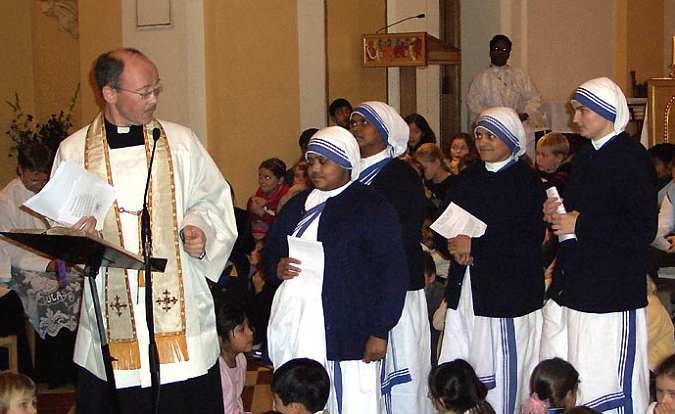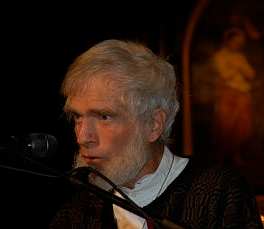Det gamle alteret er blitt restaurert og tatt i bruk igjen

En sogneprest har restaurert alteret på bildet over, og sist helg og kommende helg feirer han alle messene ad orientem (så langt har han ikke bestemt seg for å gjøre dette permanent). Slik skriver han selv om dette:
In order that the parish can see our newly restored altar in its full beauty, and used as it was intended when it was built by our forefathers, during this weekend and next I am celebrating the Masses at the high altar ad orientem, that is, facing the high altar rather than “facing the people” at the small altar as most of us are accustomed. The phrase “ad orientem” means “toward the East”, and this phrase is used to describe this posture because, in the early Church, most churches were built so that the altar faced the East. The East, being the direction of the rising sun, was seen as symbolic of Christ, as He is our Sun of Righteousness, the Light of the World, and the Daystar of the new dawn.
Sometimes people refer to the posture of ad orientem as the priest celebrating Mass “with his back to the people”, but this is a mistaken way of looking at it. The idea isn’t that the priest “has his back to the people”, but that he and the people are facing the same direction, that is, united in facing the Lord at the altar. Our holy father Pope Benedict has encouraged the re-appropriation of this ancient custom, urging us to “turn toward the Lord”, and has used it himself in public celebrations of the Eucharist. … I hope that we all may have our faith enriched and gain a new perspective on the liturgy by making use of this ancient tradition over the next two weeks.
På bloggen NLM er dette kommentert og det er også en diskusjon om forandringene som er gjort. Bl.a. har flere lesere sagt at prestens stol på bilder står feil; den bør heller settes inn mot veggen, ved ministrantenes stoler. Her er kommentarene fra NLM:
One cannot overstress the importance of the reclamation of ad orientem as part of parish liturgical practice …
Det gamle alteret er blitt restaurert og tatt i bruk igjenLes mer »

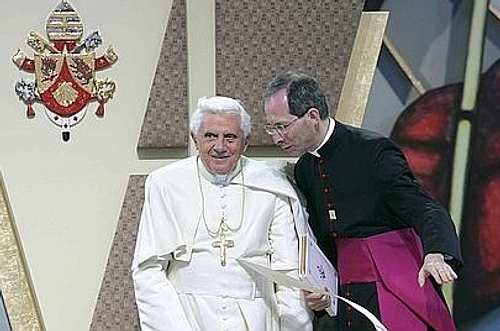
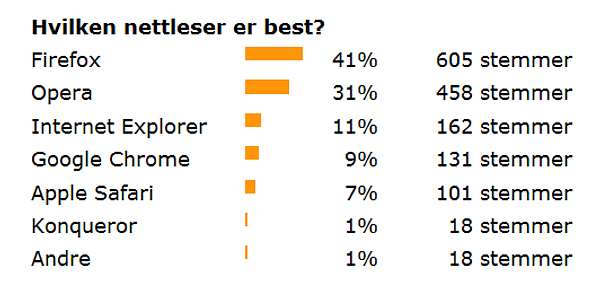
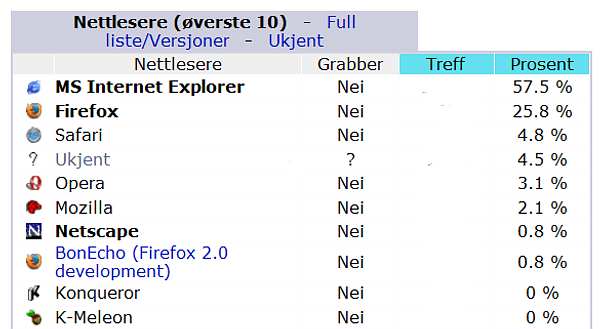
 I dag er det mor Teresas minnedag. Hun ble født 26. august 1910 i Skopje i Makedonia, og døde i Calcutta 5. september 1997. Pave Johannes Paul II forrettet 19. oktober 2003 ved hennes saligkåringsmesse på Petersplassen, samme dag som han feiret 25-årsjubileum som pave.
I dag er det mor Teresas minnedag. Hun ble født 26. august 1910 i Skopje i Makedonia, og døde i Calcutta 5. september 1997. Pave Johannes Paul II forrettet 19. oktober 2003 ved hennes saligkåringsmesse på Petersplassen, samme dag som han feiret 25-årsjubileum som pave.